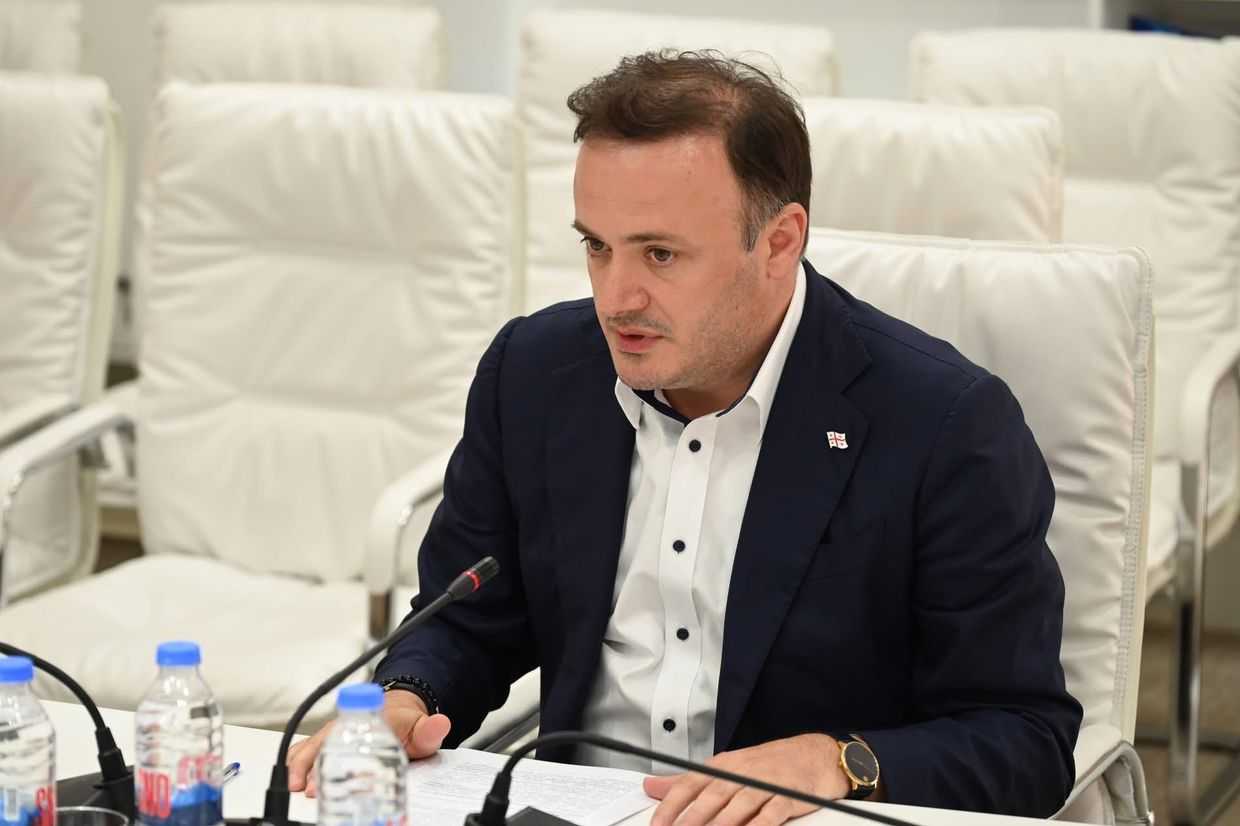
The director of a new state agency created to fund government-approved civil society organisations will receive ₾10,500 ($3,800) per month from the Georgian state budget.
According to a decree dated 13 May and signed by Prime Minister Irakli Kobakhidze, the Georgian government has approved the staff list and salary structure of the agency. The document stated that the deputy director will earn almost ₾9,000 ($3,300), while department head will receive over ₾7,000 ($2,500).
In the first eight months of this year alone, over ₾250,000 ($91,000) will be spent on the salaries of the three aforementioned individuals. The agency’s operational budget has been set at ₾510,000 ($186,000).
In the fourth quarter of 2024, the average salary in Georgia was ₾2,200 ($800), according to the National Statistics Office. After deducting the 20% income tax, the net salary amounted to ₾1,800 ($650).
In total, ₾20 million ($7.3 million) has been allocated from the 2025 state budget for the agency’s operations — including both its establishment and functioning, as well as for issuing grants.
In February, the Georgian Parliament adopted amendments to the existing grants law to establish a legal entity through which the government will issue grants to civil society organisations. The agency was officially created in April, following Kobakhidze’s signature on the relevant decree. Its office will be located within the Government Administration building in Tbilisi.
The government’s decision to allocate grants to civil society organisations comes amidst an ongoing crackdown by the ruling Georgian Dream party on independent civil society groups and media outlets, restricting their access to foreign funding.
According to the explanatory note of the aforementioned legislative changes, the primary reason for the creation of the state agency is the assertion from the government that NGOs are primarily funded by ‘foreign actors [...] who arbitrarily determine the agenda of the activities of these organisations’. In contrast, the proposed grant fund would be to support organisations whose activities ‘will be in line with the priority areas of the country’s development’.
The head of the new agency, Tamar Zodelava, previously worked in various positions in the German Agency for International Cooperation (GIZ).
Kobakhidze first floated the idea of state funding for civil society organisations in September 2024, noting that such funding would be available to groups that voluntarily registered as ‘organisations carrying out the interests of a foreign power’ under the controversial foreign agents law adopted earlier that spring.
At that time, Kobakhidze claimed that international donors had threatened to cut the funding of ‘many’ non-governmental groups if they chose to register. He did not name any specific donors in his statements.
However, after the vast majority of organisations refused to comply with the law, the ruling Georgian Dream party — which remained in power following the controversial October 2024 parliamentary elections — introduced a barrage of new restrictive legislation targeting civil society and the media.
Among them was the so-called ‘Georgian version of the US Foreign Agents Registration Act (FARA)’, which the ruling party presented as a replacement for the previously adopted foreign agents law, stating that many of the targeted organisations had refused to comply with the earlier version.
The new laws also included restrictive amendments to the Broadcasting Law and legislative changes to exclude civil society organisations from official decision-making processes.
One of the most recently adopted laws stipulates that no organisation will be able to receive a foreign grant without the consent of the authorities. One ruling party MP openly listed the names of those to be restricted from receiving grants — all prominent critics of the government.
Georgian Dream significantly accelerated the adoption of restrictive legislation after the start of anti-government protests in late November 2024, which were sparked by the ruling party’s announcement that it was halting the country’s EU membership bid.
Georgian Dream has repeatedly claimed that the new bills are necessary to fight the ‘influence of external powers’. Nonetheless, critics of the ruling party have emphasised that these changes aim to undermine the media and civil society in an already fragile democracy.
The restrictive laws are being passed in a parliament where opposition is virtually nonexistent. Following the disputed 2024 elections, opposition parties have refused to participate in the legislative process.
Since then, the ruling party has been initiating and passing new restrictive legislations without any obstacles, targeting the media, civil society, and other critics.









